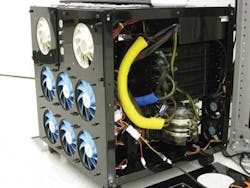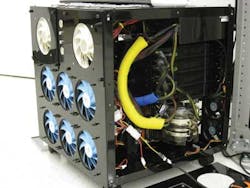Researchers demonstrate a better way for computers to interpret images
The neural processing involved in visually recognizing even the simplest object in a natural environment is profound—and profoundly difficult to mimic. Neuroscientists have made broad advances in understanding the visual system, but much of the inner workings of biologically based systems remain a mystery. Using graphics processing units (GPUs), researchers at the Massachusetts Institute of Technology (Cambridge, MA, USA; www.mit.edu) and The Rowland Institute at Harvard University (Cambridge, MA, USA; www.rowland.harvard.edu) are now making progress faster than ever before.
“We made a powerful computing system that delivers over hundred-fold speed-ups relative to conventional methods,” says Nicolas Pinto, a PhD candidate in James DiCarlo’s lab at the McGovern Institute for Brain Research at MIT. “With this extra computational power, we can discover new vision models that traditional methods miss.” Pinto co-authored the study published in PLoS Computational Biology with David Cox of the Visual Neuroscience Group at the Rowland Institute at Harvard.
Watch how the MIT/Harvard researchers are finding a better way for computers to “see” at www.rowland.harvard.edu/rjf/cox/plos_video.html.

